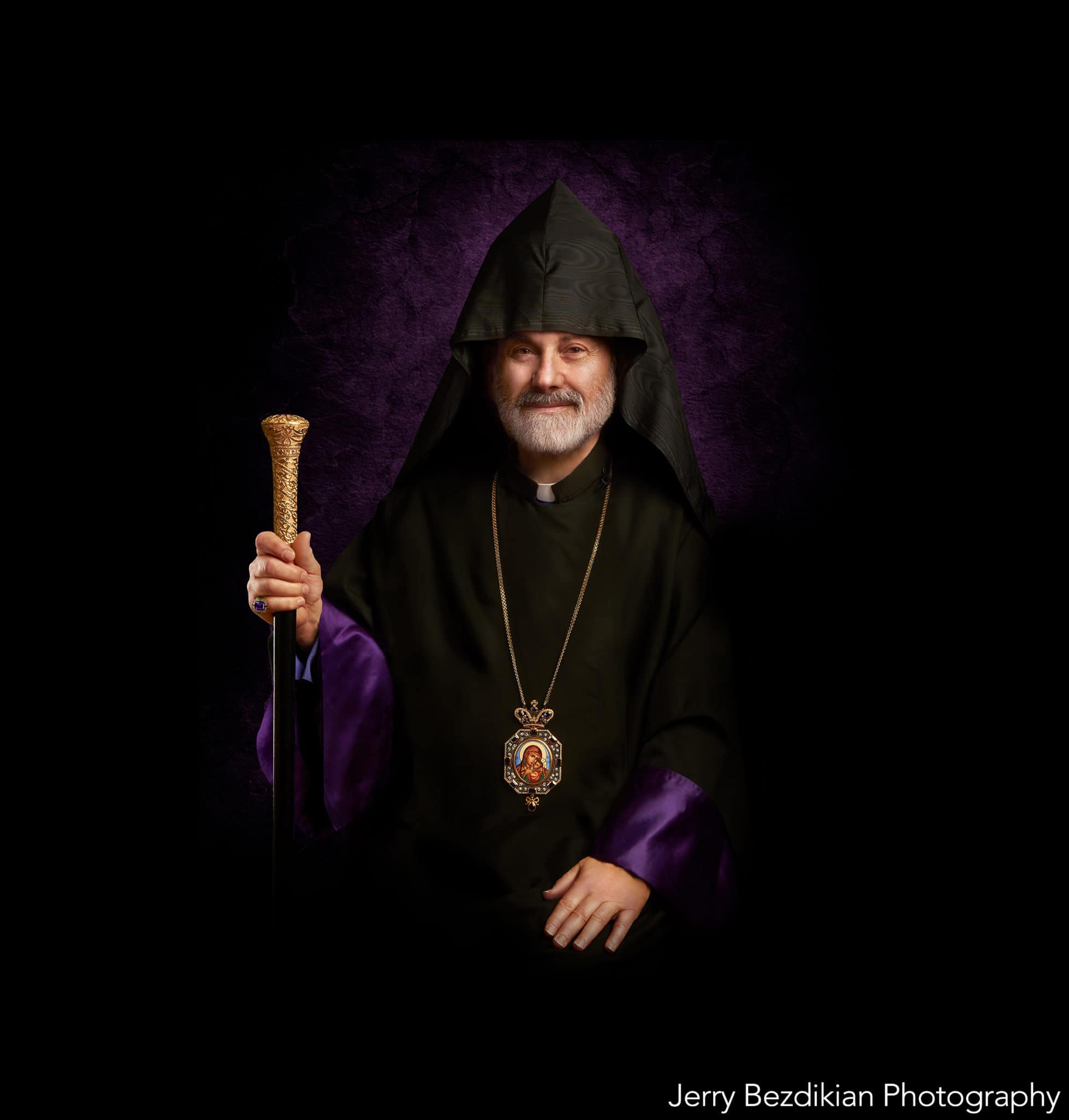TRYING TO FILL THE OCEANS’ WATERS INTO A GLASS OR THE GALAXIES INTO A BOTTLE

The Prelate’s Sermon
Sunday, September 4
Today, on the fourth Sunday of the feast of the Assumption of Saint Mary, the God-bearer, our Gospel reading is from Saint Mark 7:31-37. The Evangelist narrates the healing of a deaf man in a unique way. Jesus uttered one word, Ephphatha, that is, “Be opened”, and once again those who witnessed the miracle exclaimed, “He has done everything well.” I would like to share the message of the feast preceding this Sunday, dedicated to the First Ecumenical Council held in 325, in Nicaea (known today as Iznik, Turkey).
Upon the invitation of Emperor Constantine, 318 bishops and clergy from different churches across Christendom (cf. Gen 14:14) were assembled in Nicaea. The Armenian delegation was headed by Arisdages, the son of Gregory the Illuminator. The major issue on the agenda was the heresy of Arius, a priest from Alexandria, who denying the Divinity of Jesus Christ, confessed that Jesus was created by God; therefore, Arius and his followers claimed that Jesus was not consubstantial with God.
Before discussing the depth of this topic, it is important to lay out the historical parameter of the Council. In 314, following a miraculous revelation of the Cross in the skies with an inscription “In hoc signo vinces,” (“You will conquer with this sign,” in Latin), Emperor Constantine had defeated his competitor Maximus II, and declared Christianity as a tolerable religion. The unity of the Roman Empire, which seemed to be realized politically, unfortunately experienced cracks because of religious restlessness caused by the doctrine of Arius. The Emperor, in order to establish “Pax Romana” within the borders of his empire, presided over the Council. Eventually Arius was anathematized and exiled, and the Creed of Nicaea was composed as the foundation of the Universal Church’s belief.
The Council of Nicaea “opened” the plugged ears of Christianity, and through the expounding of Holy Scripture fulfilled in the hearing of all (Luke 4:21), thoroughly explained that Jesus is not a creature but is truly the Son of God the Father (Mark 1:1), and as the Son of the Father, that Jesus Christ is likewise True God (John 17:22). When Arisdages returned to Armenia, he read the text approved at Nicaea, and to this day, after we recite the Creed, the Armenians anathematize all those who claim that the Son is not God. In response, Gregory the Illuminator exclaimed that “we shall glorify that which has existed before all ages, bowing down to adore single, unified, and all Holy Trinity.”
It is very sad to witness that Christianity, barely being freed from three centuries of persecutions, was suffering from internal bleeding caused by Arius, who was an ordained priest. The crisis faced by the 4th century Church Fathers, no matter how it may have seemed to be new, was deeply rooted in antiquity: how is it possible to filter the Divine mystery of Holy Trinity through human understanding? The prophecy of Simeon the Aged, that “this child is destined for the falling and the rising of many in Israel, and to be a sign that will be opposed” (Luke 2:34-35), was and is and will be the stumbling block for all generations when trying to compare the Infinite with the finite; in other words, it is like trying to fill the oceans’ waters into a glass or the galaxies into a bottle.
As rational beings, we like to analyze everything within our human laboratory —our mind. Yet we should humbly confess that our rational compartment as “a remote control” is destined to change the channels of the Creation to enjoy the variety of its unlimited richness, but not to be able to control the Creator.
The Trinitarian confession of one Godhead, revealed in the Old Testament and crystalized in the New Testament, is the outpouring of Divine Love to elevate earthly dust to the eternal soul, for us terrestrial beings to enjoy Celestial blessings.
In this regard, it is astounding to see the wisdom of the Armenian Church Fathers who have designated the feast of the Council of Nicaea preceding the feast of the Elevation of the Holy Cross, the fifth and last major feast in the Armenian Church Calendar. If we are honest in our pursuit to decode the mystery of the Holy Trinity or other Divine realities, the Master Key is humbly to confess the power of the Crucified One on the Altar of the Holy Cross, “the stumbling block to Jews and foolishness to Gentiles” (1 Cor 1:23).
Instructed by Divine wisdom and early church Fathers’ experience, let us all humbly ask Jesus Christ, the Incarnate Love of our Heavenly Father, to command “Ephphatha!” to restore not only our physical but rational and spiritual hearing, and to praise the Holy Trinity. Amen.
